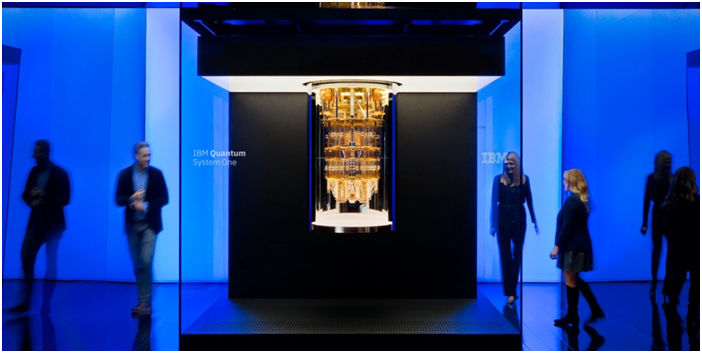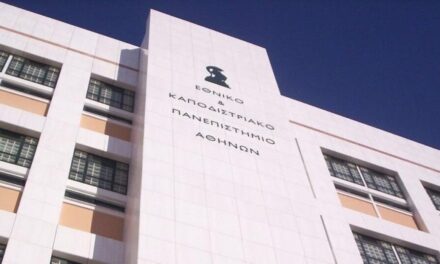The web portal Study in Greece is campaigning for the promotion and international visibility of Greek Universities and the comparative educational advantages of our country. In particular, the campaign focuses on the foreign language study programmes that Greek Universities offer to Greek and international students. The initiative is supported by the General Secretariat of Higher Education of the Ministry of Education and Religious Affairs and the General Secretariat for Greeks Abroad and Public Diplomacy of the Ministry for Foreign Affairs. In this context, a number of educational programmes and actions are presented in detail on a regular basis, such as undergraduate and postgraduate programmes, summer schools etc, to inform international students about the many foreign language options offered by Greek Universities.
Study in Greece interviewed Professor Ioannis G. Karafyllidis of the Department Electrical and Computer Engineering at the Democritus University of Thrace (DUTh), on the MSc in Quantum Computing and Quantum Technologies, its profile and what it has to offer to international students.
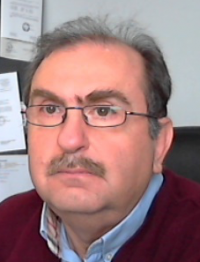 Dr. Ioannis G. Karafyllidis is a Professor in the Department of Electrical and Computer Engineering, Democritus University of Thrace and the Director of MA in Quantum Computing and Quantum Technologies. He is Fellow of the Institute of Nanotechnology (FIoN), a Founding Member of the American Academy of Nanomedicine and a Member of the Technical Chamber of Greece (TEE). He participated as principal investigator or work package leader in 12 national and international research projects, and has acted as evaluator for research proposals submitted after both national and international calls. His current research emphasis is on quantum computing, modeling and simulation of nanoelectronic devices and circuits, and biological networks modelling.
Dr. Ioannis G. Karafyllidis is a Professor in the Department of Electrical and Computer Engineering, Democritus University of Thrace and the Director of MA in Quantum Computing and Quantum Technologies. He is Fellow of the Institute of Nanotechnology (FIoN), a Founding Member of the American Academy of Nanomedicine and a Member of the Technical Chamber of Greece (TEE). He participated as principal investigator or work package leader in 12 national and international research projects, and has acted as evaluator for research proposals submitted after both national and international calls. His current research emphasis is on quantum computing, modeling and simulation of nanoelectronic devices and circuits, and biological networks modelling.
Please tell us in a few words the content, the spirit and the basic rationales of the International MSc Programme in Quantum Computing and Quantum Technologies.
Quantum computers are novel computers that use quantum mechanical properties, such as state superposition and entanglement to execute computations and solve complex problems, which are impossible to solve using classical supercomputers, no matter how much computation power they provide. Quantum technologies use quantum mechanical principles and properties to design, implement and develop novel quantum systems, such as quantum bits, quantum computer circuits, quantum sensors, quantum communications and teleportation, quantum metrology, and quantum cryptography systems. Quantum computers and quantum technologies are at the core of the second quantum revolution, which is expected to have a significant impact on all sciences, in the industry as well as in health and everyday life.
Which are the educational and professional opportunities provided by this innovative postgraduate programme? Why is it aimed at international students and why should they choose it among others?
The Electrical and Computer Engineering Department of the Democritus University of Thrace, in cooperation with the Institute of Nanoscience and Nanotechnology and the Institute of Informatics and Telecommunications of the National Centre for Scientific Research “Demokritos” organised the first international postgraduate programme in Quantum Computers and Quantum Technologies in Greece. All courses are taught in English and the programme is suitable for scientists and engineers from all around the world.
The MSc in Quantum Computing and Quantum Technologies will provide postgraduate students with cutting-edge knowledge in Quantum Mechanics, Quantum Computing and Quantum Technologies, as well as skills and abilities that will enable them to programme quantum computers and to develop novel quantum algorithms. Graduates of this programme will also be able to use and apply the acquired knowledge not only in science and research but also to tackle problems that companies face in their operation as well as to create new enterprises.
In the MSc programme curriculum are included course such as: “Quantum computing”, “Quantum algorithms and quantum information”, “Quantum devices”, “Quantum bit (Qubit) devices”, “Quantum Solid-state devices”, “Quantum communications”, “Quantum algorithms”, “Quantum machine learning” and “Advanced Topics in quantum technologies”. The curriculum also includes courses in the field of which Quantum Computing and Quantum Technologies are expected to make a great impact: “Natural and Unconventional computing”, “Computational Biology”, “Artificial Intelligence” and “Big Data Handling”.
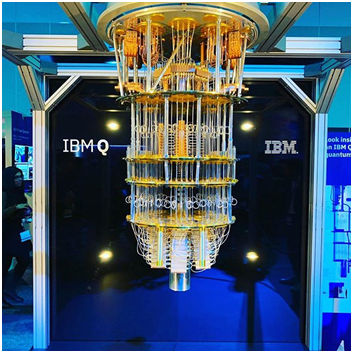 Are you satisfied from the output so far, especially in attracting international students?
Are you satisfied from the output so far, especially in attracting international students?
Not really. The MSc programme was scheduled to start in 2021-2022. We received 13 applications, of which only 1 was from an international student (India). Only 8 of the candidates were eligible for selection. The MSc programme was suspended for the academic year 2021-2022.
In your opinion, how easy is it for a Greek university to become a strong competitor globally offering knowledge in the demanding and ever-evolving field of Informatics?
It is very difficult. In the first year there are zero funds for advertisement. Then there is the problem of DOATAP (Hellenic National Academic Recognition and Information Centre), which takes too long to recognise pre-graduate titles.
A potential international student cannot get clear information about visas, insurance and housing. It is essential, especially for Universities that are not located in large urban areas, such as Democritus University of Thrace, to increase the online courses to 50% from 35% that is now. This will allow students to prepare their documents and accommodation and attend the courses at the beginning of the programmes.
There is a lot work to be done for preparing courses and this effort is usually not adequately compensated. University Professors should be motivated to develop and participate in international programmes by receiving a minimum compensation regardless of the number of enrolled students. This will keep the programmes active until they develop the necessary momentum.
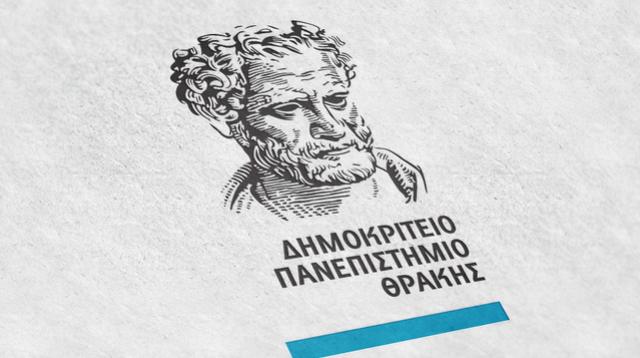 Tell us about the department of Electrical and Computer Engineering and the Democritus University of Thrace – its history, its evolution as well as the scientific and research achievements.
Tell us about the department of Electrical and Computer Engineering and the Democritus University of Thrace – its history, its evolution as well as the scientific and research achievements.
The Department of Electrical and Computer Engineering, Democritus University of Thrace, was founded in 1975. Today the Department’s Sectors are the following:
Power Systems Sector
Electronics and Information Systems Technology Sector
Telecommunications and Space Science Sector
Software and Application Development Sector
Physics and Applied Mathematics Sector
In the Department of Electrical and Computer Engineering there has been a fully organised Postgraduate Studies Programme since the academic year 1994-95 that leads to a PhD title. As of 2000-01 it is also possible for students to acquire a Master’s Degree.
Read also via Greek News Agenda: Meet “Demokritos” the biggest Research Centre of Greece; Dr. Androula Nassiopoulou on Nanoscience and Nanotechnology in Greece
N.M.

